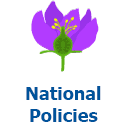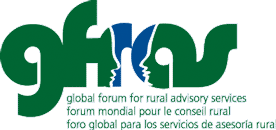 Every country has developed, formulated, and decreed national policies related to rural advisory services. Find some examples here. If you are looking for a national policy from a specific country, please use the search function, selecting the category “National policies” and the tag for the country.
Every country has developed, formulated, and decreed national policies related to rural advisory services. Find some examples here. If you are looking for a national policy from a specific country, please use the search function, selecting the category “National policies” and the tag for the country.
Applied Basic Agri-nutrition Resource Manual for Trainers
The Ministry of Public Health and Sanitation, in collaboration with nutrition partners, launched the SUN at a symposium in November 2012. This initiative aligns well with the Nutrition Action Plan recently drafted by USAID-KHCP that is being rolled out in phases across all Feed the Future (FTF) counties. It relies on effective collaboration with the Ministry of Agriculture and Ministry of Public Health and Sanitation by utilizing the services of the personnel within the existing structure to provide practical training on household nutrition and dietary diversity with communities upported by the project. The collaboration with the two ministries will draw from their existing expertise, the community strategy, and the country nutrition focus, and will utilize and strengthen already existing structures.
Kenya: Landscape Analysis
This analysis begins with an overview of Kenyan geography, culture, and poverty status. It then provides a description of the Kenyan agricultural sector, the national agriculture strategy, and women’s involvement in agriculture; food security and nutrition issues in the country; and the national nutrition strategy. In addition, the landscape analysis provides details on the Feed the Future approach in Kenya and how USAID’s country strategy supports Feed the Future and potentially INGENAES. The final section of the report includes descriptions of various projects that are relevant to INGENAES.
Stories From the Field: Food and Nutrition Challenges in North-western Kenya
Securing food supplies is a struggle some pastoral communities in the Horn of Africa face every day. In the semi-arid north-western region of Kenya, members of the Pokot and Turkana tribes live on two meals per day. FAO REOA and its partners have rolled out the Pastoralist Field Schools (PFS) programme to help improve the food and nutrition security situation, but the local communities are still vulnerable. Cheppurai Lolli and Elizabeth Imuran, both PFS members, share their experiences.
Singing the Same Song: Nutrition-sensitive Agriculture Messages in Zambia
Zambia has experienced more than a decade of robust economic growth and stable maize production, yet food and nutrition security has not improved significantly. Over 40% of children under five are stunted (Central Statistical Office, 2015) and 48% of the population is undernourished (FAO/IFAD/WFP 2015). Growing evidence suggests that this seeming paradox may be associated with an overemphasis on production and consumption of the staple crop, maize: roughly 51% of cultivated land is committed to maize, which constitutes 57% of the national diet.
Feeding the Five Thousand: How Junior Farmer Field and Life Schools are bridging the nutritional gap in Kakuma
“In the last three months, the children have made over ten thousand shillings from the sale of kales, brinjals, spinach, tomatoes, capsicum and carrots to the neighbouring communities. Besides, the school has also been using the same plots to feed the children themselves”, says a proud Ekal Lochi. A teacher at Kalobeyei Boarding Primary School, Mr. Lochi, who is also the JFFLS facilitator at the school, proudly displays the children’s own farm records of the returns of their farming efforts at the school. The profits, he explains, are used for their upkeep in case of sickness and to pay for examinations.

